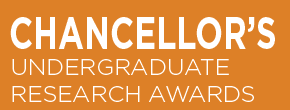Guochang Hu
Email Address: gchu@uic.eduCollege: Medicine Department: Anesthesiology
Title: Professor
Office: 544 CMW Phone: 64692
Webpage: http://www.uic.edu/depts/mcph/falc_hu.htm
Participating in the Chancellor’s Undergraduate Research Awards program: Yes
Research Interest:
My laboratory focuses on the molecular mechanisms of acute lung injury/acute respiratory distress syndrome (ALI/ARDS). The bacterial endotoxin (lipopolysaccharide, LPS) can trigger a systemic hyper-inflammatory response that subsequently leads to multiple organ dysfunction syndrome. LPS binding to toll-like receptor 4 (TLR4) induces the activation of mitogen-activated protein kinase (MAPK) and nuclear factor-κB (NF-κB) resulting in production of pro-inflammatory cytokines. When this production becomes uncontrolled and excessive, it leads to the development of septic shock. Ventilator-induced lung injury (VILI) accounts for as many as one-third of all deaths attributed to acute lung injury. In particular, the risk of VILI is increased in the patients with sepsis and pneumonia. Evidence has supported the concept that development of pulmonary inflammation in response to mechanical stress results in polymorphonuclear neutrophil (PMN) infiltration into the lung tissue and hence lung injury. We are interested in identifying signal pathways modulating sepsis- and ventilator-induced inflammation and lung injury. Another research interest is the molecular mechanisms regulating endothelial permeability. An important function of the endothelium is to regulate the transport of liquid and solutes across the semi-permeable vascular endothelial barrier. Two cellular pathways have been identified controlling endothelial barrier function. The normally restrictive paracellular pathway, which can become "leaky" during inflammation when gaps are induced between endothelial cells at the level of adherens and tight junctional complexes, and the transcellular pathway, which transports plasma proteins the size of albumin via transcytosis in vesicle carriers originating from cell surface caveolae. We are interested in elucidating the signaling mechanisms that regulate paracellular and transcellular endothelial permeability pathways in response to inflammatory insults. Minimum time commitment in hours per week: 20 Qualifications of a Student:
None Brief Summary of what is expected from the student:
Hard-working students who are interested in biomedical research. Contact researcher via URE Email Webform



